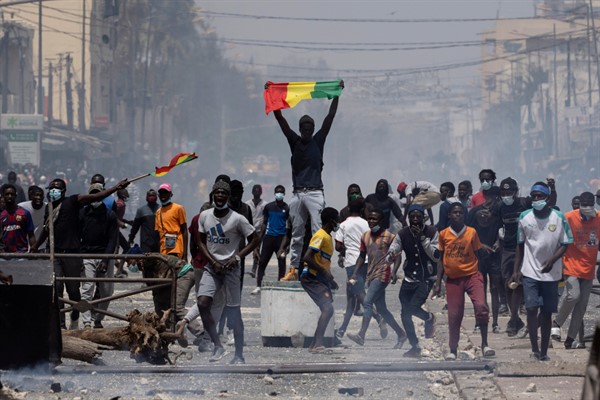It all started with an accusation of rape.
In early February, the Senegalese press reported that a young woman who works at a massage parlor in Dakar had filed a complaint against Ousmane Sonko, a prominent opposition leader and a member of parliament, accusing him of raping her and threatening her life. On hearing the news, Sonko, who came in third in the country’s last presidential election in 2019, cried conspiracy, accusing Senegal’s president, Macky Sall, of fabricating the claim in order to destroy his political career and send him to prison.
As a member of parliament, Sonko was in theory protected from the charge by parliamentary immunity. But within weeks, the National Assembly, Senegal’s unicameral legislature, voted to strip him of that protection, opening him up to criminal prosecution. He was then summoned to court for a hearing—but before he could get there, he was arrested for disorderly conduct and placed in police custody.

